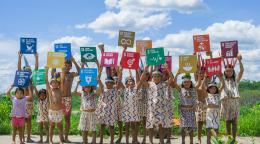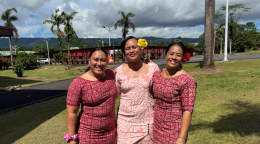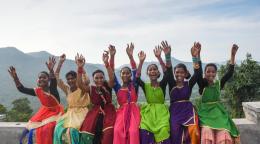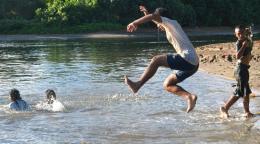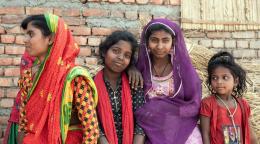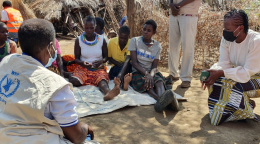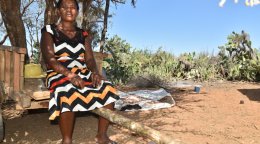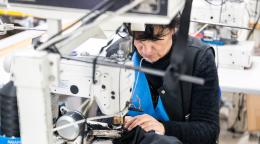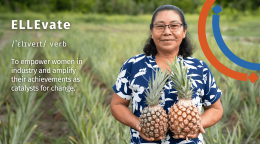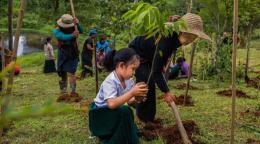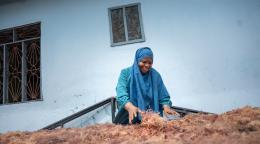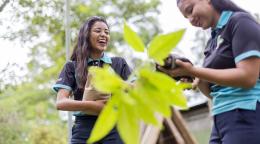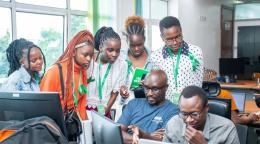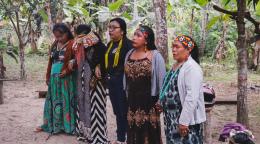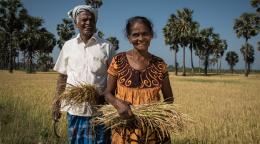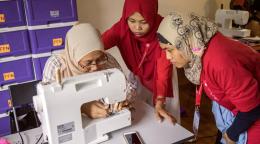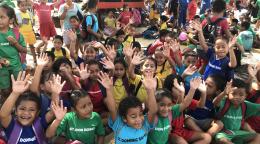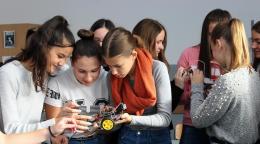Lebanon’s Young Women Redefine Leadership in Universities
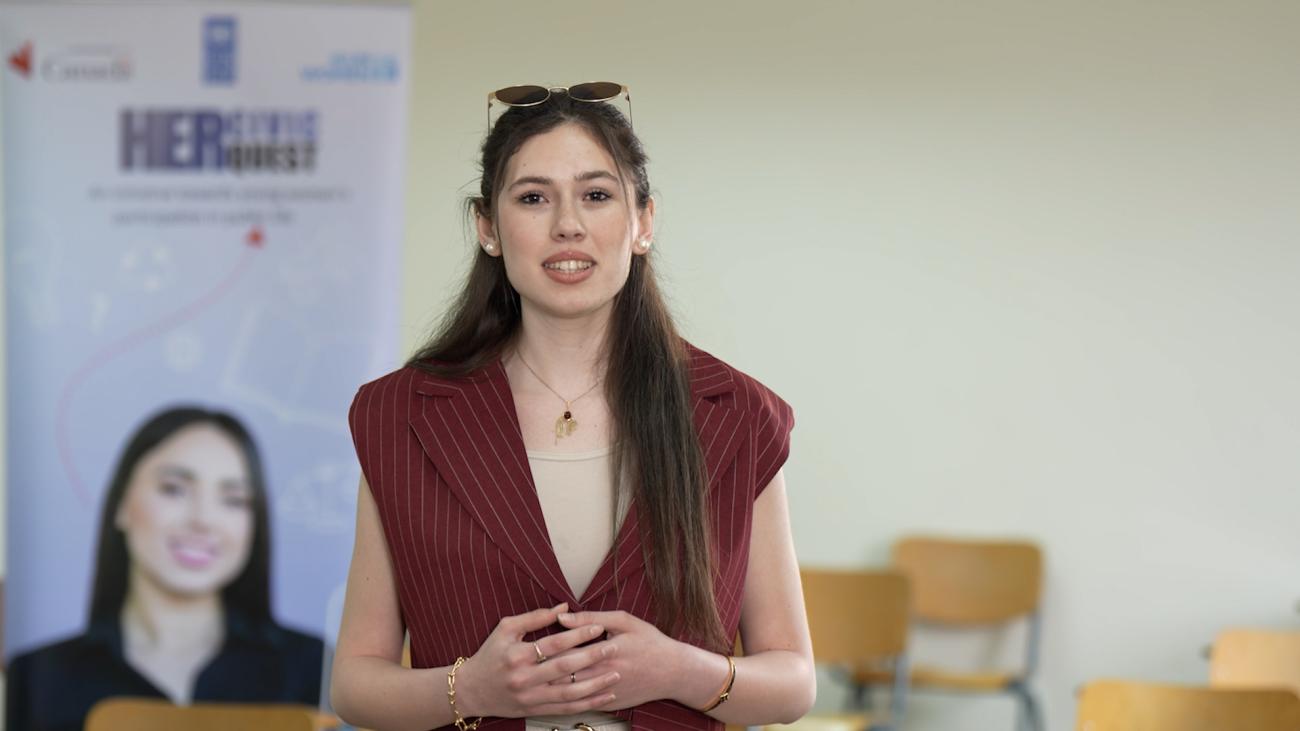
In Lebanon, amid overlapping economic and political crises, a new generation of young women is rising to the challenge, turning adversity into agency. University campuses are emerging as critical avenues where young women claim their rights and step into leadership roles and shape the country’s future socio-political landscapes.
Supported by the United Nations team in Lebanon, and under the leadership of the UN Resident Coordinator, UN agencies have been supporting women to leverage their leadership, advance gender equality and drive sustainable development. In 2024, more than 13,000 people gained new skills to access the labour market; 60 per cent of them were women. At the same time, over 2,600 enterprises and cooperatives improved their business practices, with women leading the majority.
Women in Lebanon hold less than 7 per cent of parliamentary seats and youth voices are often marginalized. In light of this, these changes may seem subtle but are significant. They indicate a new form of civic life, where young women not only participate but also lead.
This begins on college and university campuses where young women still encounter structural barriers, such as limited participation, restrictive social norms and behaviours, and gender-based violence. A joint UN programme, “Women’s Participation in Leadership (WIPL)”, led by UN Women and UNDP, is empowering young women to overcome these barriers and foster safe spaces for dialogue and leadership.
Here is a glimpse into some of the change-makers emerging from this initiative:
Reem and Dana: Leading Dialogues, Finding Confidence Beyond the Classroom
When someone raised their voice in a room, Reem Herzallah’s instinct was always to leave. The Beirut Arab University student avoided conflict, believing that her place was to stay quiet while others dominated the conversation.
“I thought I had no role when the discussion got heated,” she admits softly. “I used to think leadership was for people louder than me.”
Today, Reem is the one guiding those conversations, specifically on gender equality and advocacy. She now uses negotiation techniques that she learned during the program to address disagreements constructively and engage in discussions that once felt intimidating.
“Now I know how to lead that dialogue. I understand our role as young women in shaping the spaces we belong to.”
Reem’s transformation reflects a broader shift taking root across four major universities in Lebanon, namely the Lebanese University, Université Saint-Joseph, the American University of Beirut, and the Beirut Arab University. Around 250 young women from these academic institutions engaged in workshops and community initiatives under the programme.
These workshops and community projects provided young women with more than just skills; they instilled courage and created safe, inclusive spaces for dialogue, leadership training, and civic engagement. Within these spaces, young women practiced leadership and discovered the power of their voices.
Similarly, at the American University of Beirut, Dana Al Hachem recalls how lost she felt during her first year.
“I didn’t know what to expect, and I felt completely alone,” she remembers.
After joining the workshops, Dana began speaking up, taking on leadership roles, and mentoring her peers. At AUB, she served as Secretary General of the Model United Nations, having previously chaired the UN Women committee on women, peace, and security. She also held key leadership positions in the UNICEF Club and the Political Studies Student Society, leading initiatives that supported women, migrant workers, and programmes focused on women. Beyond these roles, she also mentored younger women at the university, encouraging them to pursue leadership and political ambitions.
“Now I love helping younger women who are like me, whether in academics, clubs, or student life,” she says.
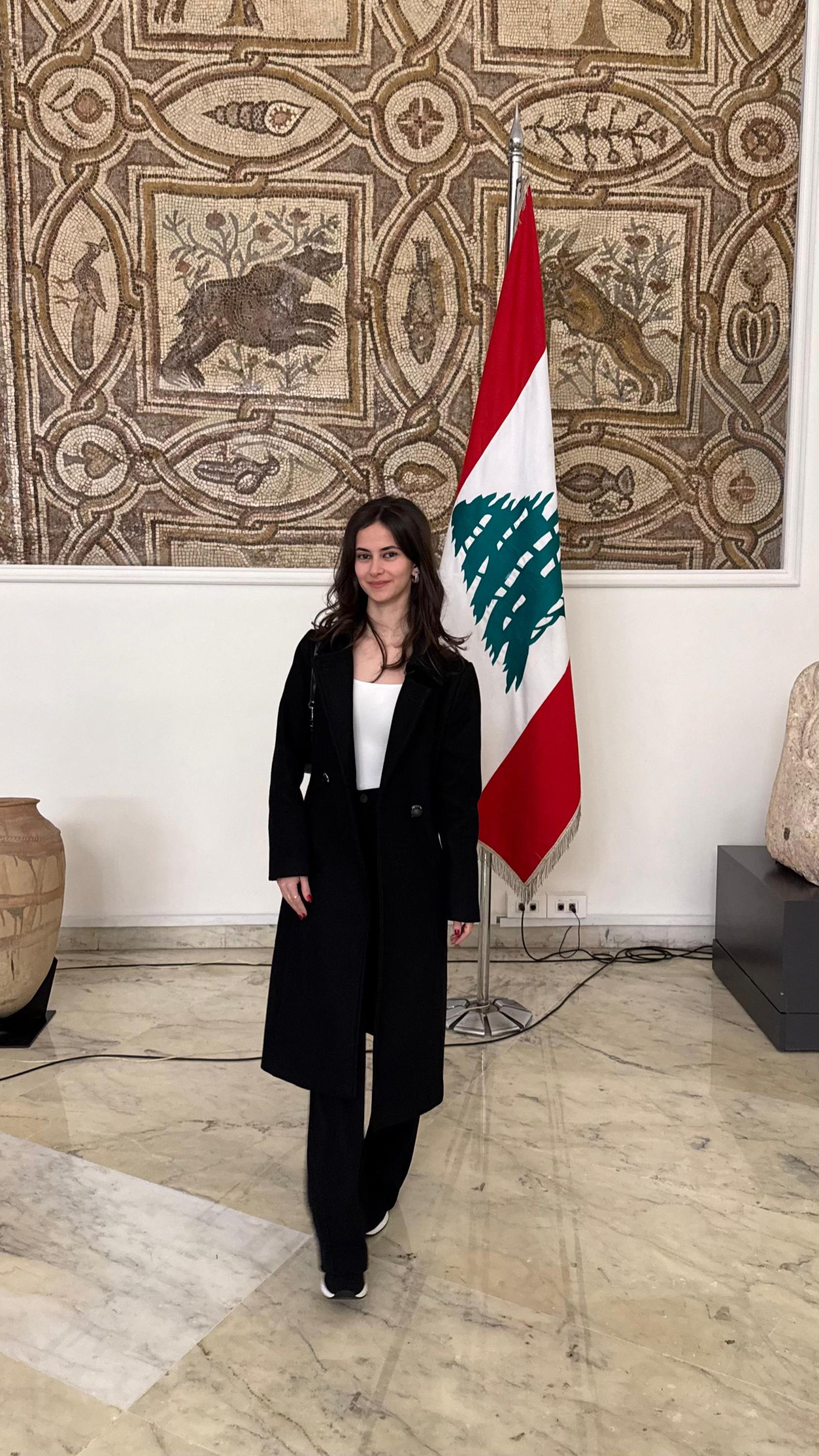
Leony and Jenna: Finding Role Models that Spark Change
For many others, the turning point came when they met women leaders who looked like them. The programme provided a platform for young women to connect with leaders whom they can emulate and engage with.
“Everything shifted when I attended an UN-facilitated dialogue with Members of Parliament on women’s political participation,” says Leony Lawandos.
“They didn’t just challenge the system; they claimed space in it. They showed me we don’t need permission; we already belong at the table as equal citizens.”
Another student, Jenna Kheireddine, was inspired by watching Member of Parliament Halima Kaakour speak out in Parliament. “We have the right to be heard not only on gender issues but on all issues,” she says. “We’re the same as men and everyone else at that table, and we deserve respect.”
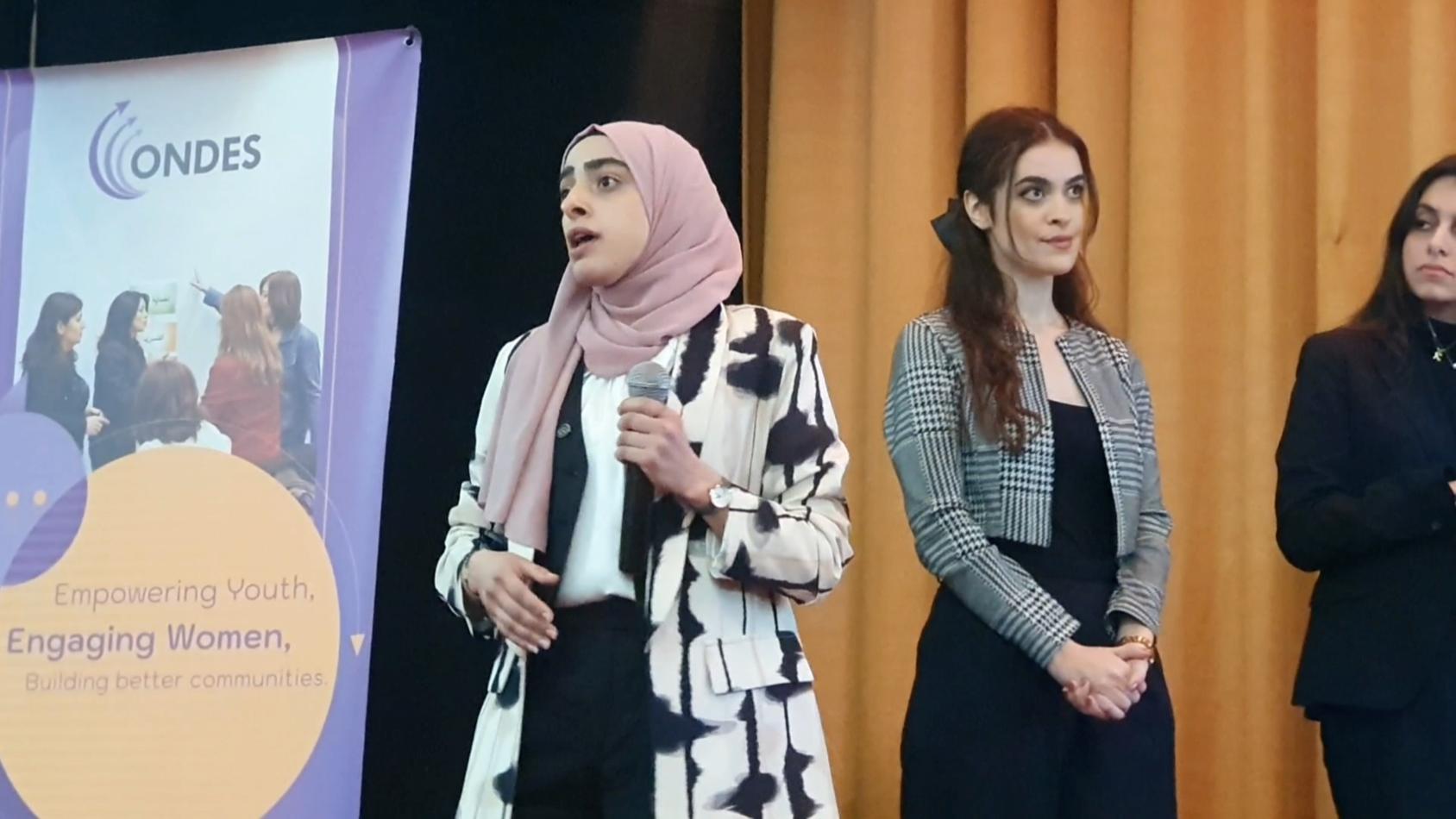
Nouhad: Theatre as Safe Spaces in Times of Crisis
Beyond this, the programme has used art and theatre as a creative space where young women’s emotions could be safely explored and voices could rise with confidence.
Nouhad Hajj from the Lebanese University found refuge in Ondes’ theatre-based leadership exercises.
“Every moment we worked together, I could feel something shifting inside me,” she said. “We created a safe, non-judgmental space where everyone’s voice mattered.” Those improvised scenes revealed her power to speak truths and listen deeply, and the stage became the launching pad for Nouhad’s own storytelling workshops, where solidarity turns pain into resilience.
At Université Saint-Joseph, Hala Dalloul echoes this feeling: “Despite all the challenges, we didn’t miss a single session. [Theatre] became our safe space. We grew not just as students, but as changemakers.”
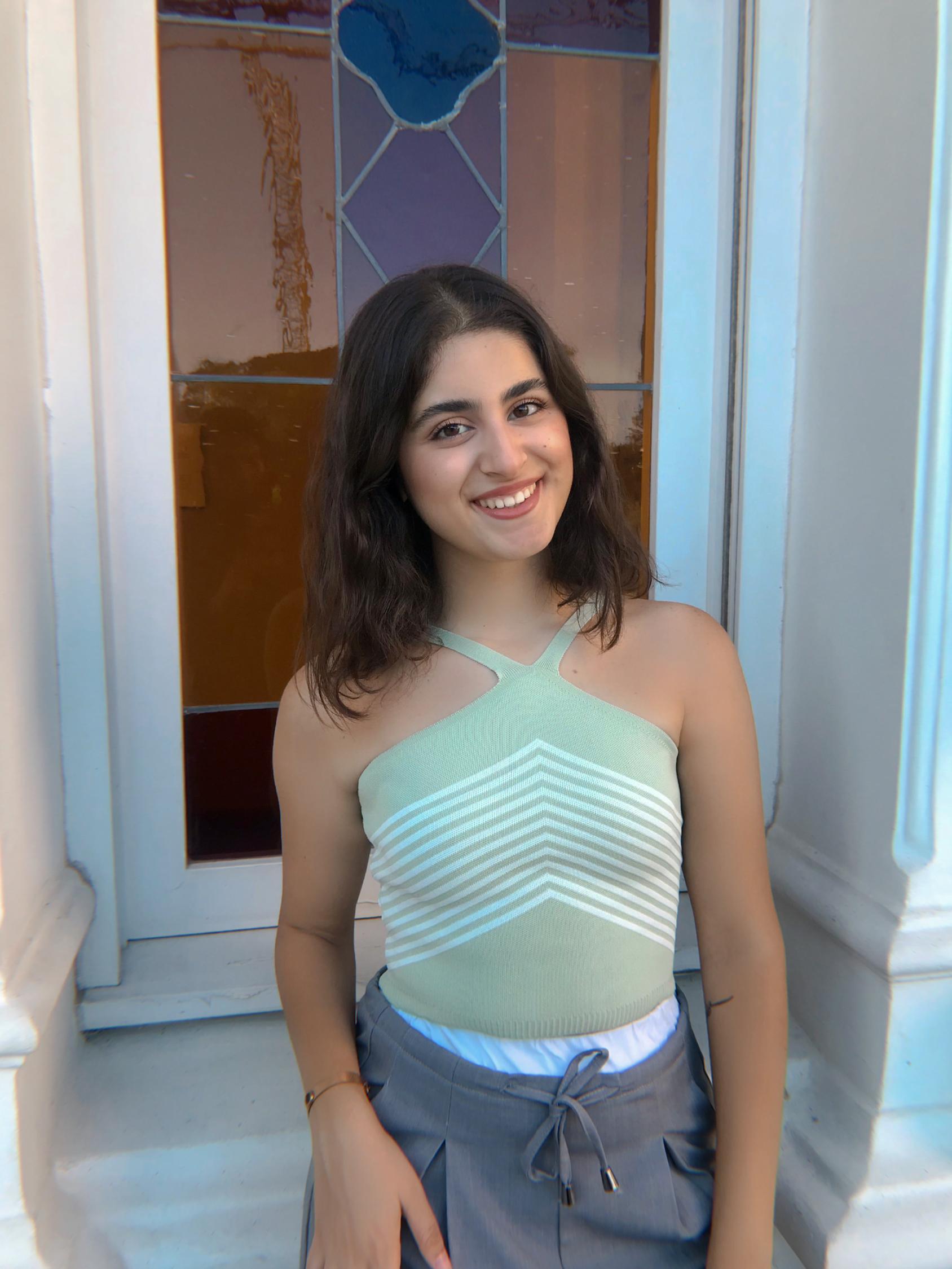
Snowball Effect: From Learning to Action
The support provided by the programme is having snowball effects in different areas beyond gender advocacy. At Beirut Arab University, students have started environmental campaigns promoting eco-friendly habits as a way of contributing to a broader cause. Others encouraged democratic participation on campus by backing student elections and fostering political dialogue.
What unites these journeys is the reimagining of leadership itself. For these students, leadership is not about hierarchy or loud voices; it is about inclusivity, courage, and creating space for others to lead.
As one of the students, Jenna puts it: “Now when I speak, I no longer wonder if I belong. I know I do, and I’ll keep that space open for others too, ensuring women are heard and respected on all issues.”
These initiatives are implemented by UN Women and UNDP with the support of the Government of Canada, in close partnership with several local stakeholders. All of these young women’s stories would not have been possible without the generous support from the Government of Canada, one of Lebanon’s top donors. Since 2016, Canada has contributed nearly $540 million to Lebanon, supporting efforts to enhance protection, promote gender equality, maintain social stability, ensure food security and improve health. Canada is also a strong champion of pooled funding, supporting both the Lebanon Humanitarian Fund (LHF) and the Lebanon Recovery Fund (LRF). Further details on international assistance to Lebanon are available in the Lebanon Aid Tracking reports.
